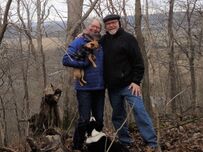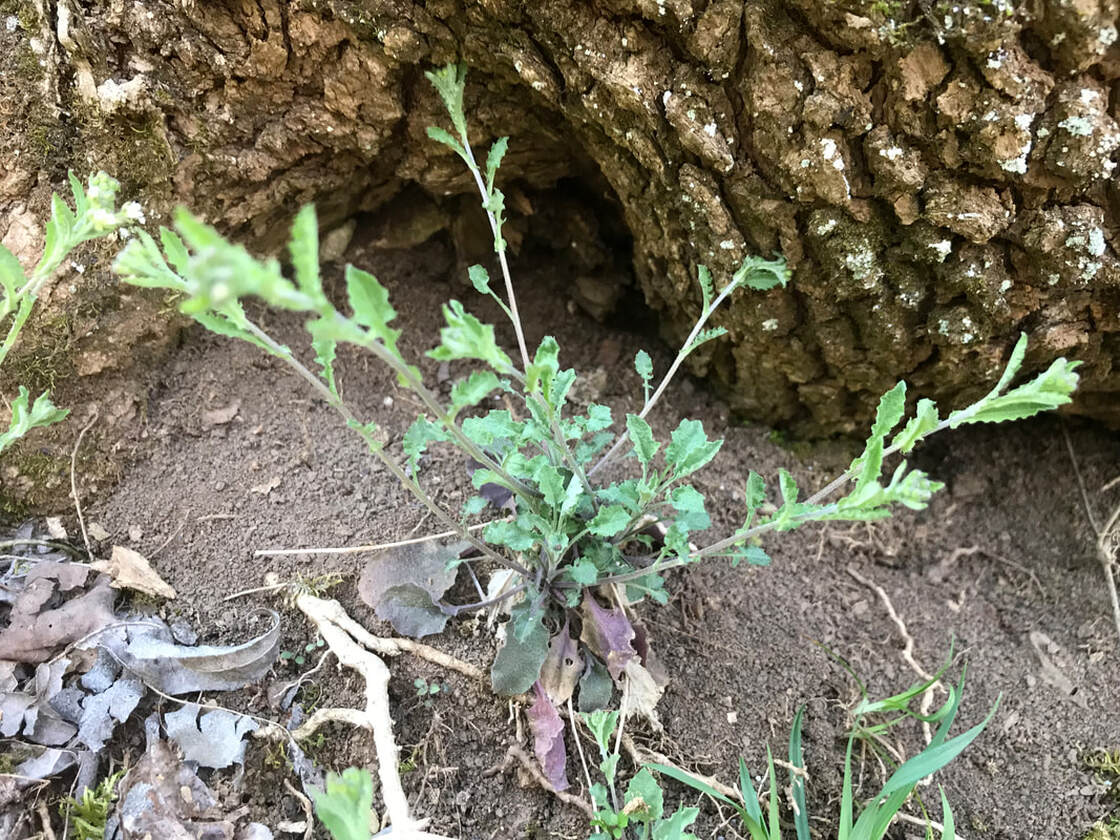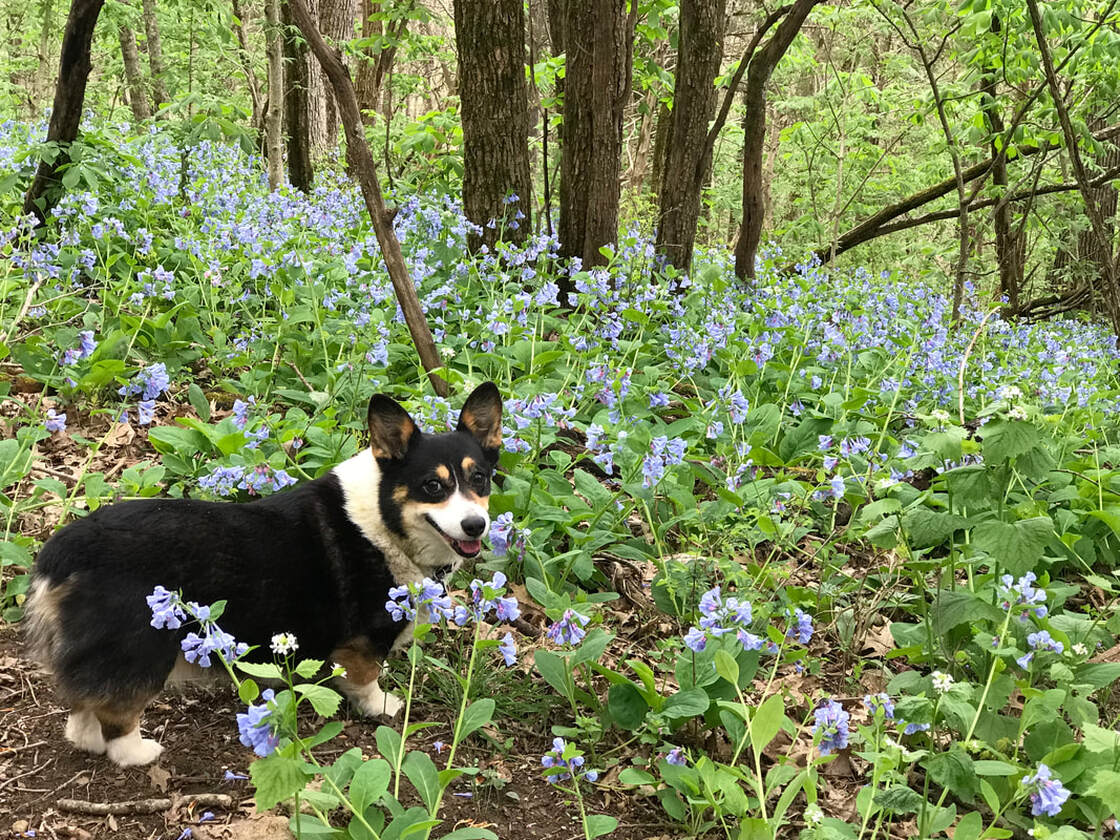Wrens, trees and endangered species have rights too on Roberts and Beshoar farm in Franklin County, Kentucky
Submitted by Mark Roberts
Our land is located on the Elkhorn Creek in northern Franklin County. It is about 70 acres, mostly hill that slopes down to the creek. It is primarily wooded.
Our land is located on the Elkhorn Creek in northern Franklin County. It is about 70 acres, mostly hill that slopes down to the creek. It is primarily wooded.
We purchased the land in 1985. It had in the past been cleared for cattle and tobacco. It hadn't had cattle in some years at time of purchase, but tobacco was still being farmed.
We were interested in encouraging reforestation. A neighbor who happened to be an ecologist, discovered Braun's Rock Cress on our property, which is a federally endangered plant that lives mostly in Franklin County. So, our plans expanded to include protection of this tiny plant.
We were interested in encouraging reforestation. A neighbor who happened to be an ecologist, discovered Braun's Rock Cress on our property, which is a federally endangered plant that lives mostly in Franklin County. So, our plans expanded to include protection of this tiny plant.
Our main focus has been letting the forest evolve naturally, but with an emphasis on battling invasive species and gradually planting native trees. In the beginning, we planted hundreds of bareroot seedlings, but found the survival rate to be so small as to be a waste of time. In recent years we have shifted to planting more mature trees (2-3 foot) that have been container grown. So far we have seen success with this method—every tree planted has survived. It is a much slower process with higher initial outlay, but it clearly is much more satisfying.
We have worked with Woods and Waters Land Trust to place a conservation easement on about 57 acres. The easement prohibits future logging or development of the property. Our purpose in doing so is to protect some part of the forest along the creek.
I like to tell this little story about our relationship to the land. One day I was standing outside enjoying my property, property I had paid for and held a deed on, and paid taxes on. A Carolina wren landed on a fence post while I stood there, and loudly proclaimed his ownership of all he could see.
That's when I realized I did not own the land in total. I only owned the human rights to it. The wren owned the wren rights, the trees the tree rights, and every other creature owned its own rights to this place. It forced me to see the disconnectedness of everything on this small bit of land. And that my part was only one small piece of it.
But I had the power to alter the environment in ways that could damage the rights of the creatures and trees I shared this land with. That's a heavy responsibility.
Today it seems that exploitation of the land—mining, logging, building—takes precedence over any other value. As individuals, we can feel powerless. But there is one thing we can control and that is the future of this one small piece of the natural world.
We can create a place where nature gets to rule. A place where trees can live to maturity; where the Braun's Rockcress can exist. We can set aside one hill in Peaks Mill that will always have wildflowers in the spring, be green in summer, colorful in the fall and quietly sheltering wildlife in the winter. That will take carbon dioxide from the air and filter water as it wends its way to the Elkhorn on to the Kentucky River.
We can leave one small piece of nature for future generations.
We have worked with Woods and Waters Land Trust to place a conservation easement on about 57 acres. The easement prohibits future logging or development of the property. Our purpose in doing so is to protect some part of the forest along the creek.
I like to tell this little story about our relationship to the land. One day I was standing outside enjoying my property, property I had paid for and held a deed on, and paid taxes on. A Carolina wren landed on a fence post while I stood there, and loudly proclaimed his ownership of all he could see.
That's when I realized I did not own the land in total. I only owned the human rights to it. The wren owned the wren rights, the trees the tree rights, and every other creature owned its own rights to this place. It forced me to see the disconnectedness of everything on this small bit of land. And that my part was only one small piece of it.
But I had the power to alter the environment in ways that could damage the rights of the creatures and trees I shared this land with. That's a heavy responsibility.
Today it seems that exploitation of the land—mining, logging, building—takes precedence over any other value. As individuals, we can feel powerless. But there is one thing we can control and that is the future of this one small piece of the natural world.
We can create a place where nature gets to rule. A place where trees can live to maturity; where the Braun's Rockcress can exist. We can set aside one hill in Peaks Mill that will always have wildflowers in the spring, be green in summer, colorful in the fall and quietly sheltering wildlife in the winter. That will take carbon dioxide from the air and filter water as it wends its way to the Elkhorn on to the Kentucky River.
We can leave one small piece of nature for future generations.


